|
Law as an indispensable tool to achieving SDG 16 on Indigenous Peoples' collective rights to land, territories, and other natural resources.
By Luisa Cruz
Almost 500 million Indigenous Peoples worldwide are the custodians of 80 percent of the world's biodiversity. The contribution of Indigenous Peoples' knowledge on sustainable and ecological practices to climate change mitigation and adaptation and to the conservation of biodiversity is now well recognized worldwide.
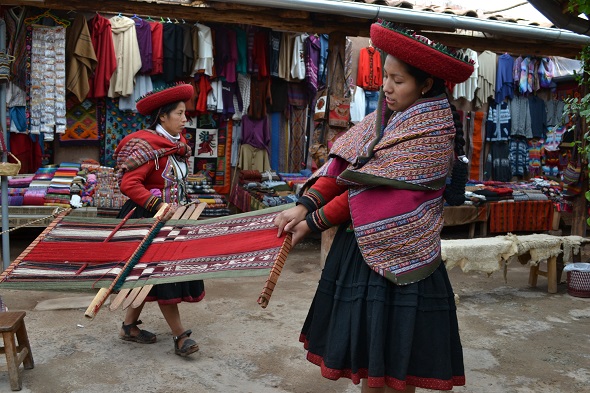
Yet, there are still numerous challenges to Indigenous Peoples' collective rights and food systems. These include rural-urban migration, abandonment of traditional practices, land grabbing and encroachment of territories, the influx of highly processed imported foods, environmental pollution, deforestation, forced displacement, and increasing rates of suicide and self-harm amongst indigenous youth1. Insecurity of tenure and the loss of access to land, natural resources and territory constitutes the main threat to their livelihoods and survival. The high level of criminalization and killing of Indigenous Peoples who seek to protect their collective land rights are matters of growing concern. Moreover, measures taken by governments to incentivize economic growth in the wake of the COVID-19 pandemic have on occasion overridden the legal protection of procedural rights of Indigenous Peoples, such as the right to consultation and to free, prior, and informed consent, resulting in further vulnerability and food insecurity2.
In such a complex and challenging context, appropriately-designed legislation can create opportunities for increased legal protection of collective rights. Legislation is an indispensable tool to establish expeditious land titling procedures and effective mechanisms to protect against expropriation, including monitoring and early warning systems and the explicit prohibition of forced eviction from ancestral lands.
Similarly, there is an increasing need to improve existing legislation through participatory processes that harmonize sectoral laws across the different areas of FAO's mandate to ensure legal coherence and to avoid potential negative impacts on Indigenous People’s collective rights. For example, conservation laws that delimit areas for natural parks are often the territories where Indigenous Peoples live, ignoring or even outlawing their continued lives and livelihoods. Legislation tailored to protect Indigenous Peoples' collective rights helps ensure respect and harmonization with customary law and indigenous legal regimes. Some countries recognize legal pluralism (in particular the co-existence of customary and statutory law) as a way to respect the self-determination of Indigenous Peoples, but they lack effective law enforcement mechanisms. Preserving the coexistence of a State court system and indigenous justice systems is a principle upheld by the United Nations Declaration on the Rights of Indigenous Peoples (UNDRIP) and ILO Convention 169. Moreover, the protection of Indigenous Peoples' land rights defenders is indispensable to achieving SDG 16 on peace, justice, and strong institutions. It has become clear that more significant efforts to recognize, protect, and strengthen Indigenous People's rights over their lands, territories and natural resources are required to achieve poverty reduction objectives and sustainable development, including transformative food systems, environmental protection, and protection of Indigenous Peoples' cultural heritage.
FAO's Development Law Service (LEGN) supports countries on this path and explores innovative and participatory legal strategies to protect Indigenous Peoples' collective rights. On the occasion of the 20th session of the United Nations Permanent Forum on Indigenous Peoples Issues (UNPFII) dedicated to "Peace, justice and strong institutions: the role of Indigenous Peoples in the implementation of Sustainable Development Goal 16", LEGN and the Indigenous Peoples Unit of FAO jointly organized a side event on 21 April 2021 on FAO's role in contributing to achieving peace and justice for Indigenous Peoples.
For more information about the event, please click here.
1. See, FAO and Alliance of Biodiversity International and CIAT. 2021. Indigenous Peoples’ food systems: Insights on sustainability and resilience from the front line of climate change. Rome, p. XII.
2. See Report of the Special Rapporteur on the rights of indigenous peoples, José Francisco Calí Tzay to the General Assembly, 20 July 2020 https://undocs.org/en/A/75/185.
An online “Legal-Hub” to inform participatory law reform processes on Sustainable Wildlife Management (SWM).
By Eugenio Sartoretto
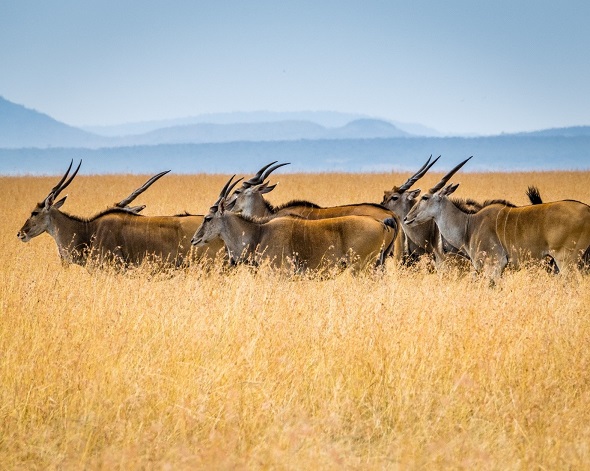
The Sustainable Wildlife Management (SWM) Programme is an innovative, collaborative and scalable initiative developed by the Organization of African, Caribbean and Pacific States (OACPS) and works in 15 countries (Botswana, Chad, the Democratic Republic of Congo, Egypt, Gabon, Guyana, Madagascar, Mali, Namibia, Papua New Guinea, the Republic of Congo, Senegal, Sudan, Zambia and Zimbabwe).
The Programme aims to conserve wildlife and protect ecosystems, while improving the living conditions and food security of the people who depend on these resources. The development and enforcement of appropriate legal frameworks is critical to achieving these objectives.
Yet, obtaining comprehensive and accurate knowledge on how natural resources are managed is neither easy nor straightforward, as these are regulated by a myriad and complex set of sector-specific rules, which may often be either incomplete or incoherent. This is all the more so in countries where natural resources governance is based both on statutory and customary law, and where conflicts at community level are often managed through informal justice systems.
In this context, facilitating public access to legal texts and their analysis across sectors is a necessary step to inform stakeholders’ dialogue on sustainable management of wildlife and ecosystems as well as on the recognition of legal pluralism and the rights of indigenous peoples and local communities (IPLCs).
To support knowledge development, the SWM Programme has created the Legal-Hub which is an online platform, available in English and French. It offers country-dedicated pages with overviews of the legal regime applicable to those sectors relevant to wildlife management, divided by thematic areas: “preconditions” (land and inland water tenure/planning); “consumption use” (hunting/fishing off-take and distribution); “non-consumption use” (protected areas and ecotourism); “human-wildlife conflicts”, “animal production”, “animal health” and “food safety”.
Each country page of the Legal-Hub (currently featuring only Madagascar and Zimbabwe) is structured around three main sections:
-
a legal database organized by sector, where a user can access and download all the relevant national policies, laws and regulations;
-
an overview of the level of domestication of ratified international instruments (CITES, CMS, Ramsar Convention on Wetlands, etc.);
-
a diagnostic of the statutory law which provides summaries of sector specific legislation and regulations, including strengths and weaknesses (gaps and inconsistencies).
The information contained in the Legal-Hub country pages is the product of the application, by national legal consultants, of three legal diagnostic tools with their supporting methodologies, with validation by government counterparts. Two additional diagnostic tools on customary law and law enforcement are also available in support of any law development work in the country.
On April 15, 2021, a webinar entitled “How can the law support sustainable wildlife management? Tools to connect different sources of law and scientific knowledge” was held to launch the Legal-Hub and present the country page of Madagascar. The event attracted 180 participants from over 36 countries and is available on Youtube and FAO/LEGN webpage.
Too many cooks spoil the broth? The case of ocean governance.
By Buba Bojang
Global ocean governance has historically developed through a variety of individual institutions, each with their own specific responsibilities, and accompanying legal and policy instruments. Each one contributes to a part of the myriad aspects that have been, or are becoming, relevant to oceans, such as marine environment protection, maritime transport, fisheries and the protection of the seabed beyond national jurisdiction, especially in the context of the SDGs.
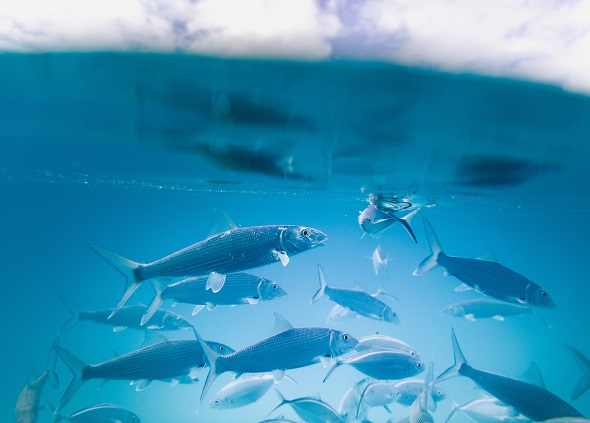
Though these institutions are generally effective in implementing their respective mandates at the global level, individual countries may face challenges in implementing their specific requirements in a coherent and integrated manner. The myriad legal and policy instruments on ocean governance developed by these institutions is fragmented and often developed in silos. This translates into lack of coherence and possible overlap in legislative and institutional frameworks at the national level to address ocean governance. Therefore, in order to achieve the ambitious goals of the SDGs, and the aspirations of the UN Convention on the Law of the Sea (UNCLOS)3, a paradigm shift in the current approach to global ocean governance is required.
This short article asks whether coordination among institutions in the execution of their respective mandates is required in order to fulfil the overall objective of global ocean governance in line with the aspirations of UNCLOS and the SDGs.
It is clear that no single international institution with ocean governance mandate, whether to make binding decisions or otherwise, can effectively and sustainably drive ocean governance alone. For example, the mandate of the IMO is limited to maritime safety and prevention of marine pollution. It does not regulate other aspects of ocean governance such as fisheries and the protection and preservation of the seabed beyond national jurisdiction. Similarly, FAO has developed a plethora of global legal and policy instruments regarding fisheries management, yet its mandate does not extend to protection of the marine environment, which is the mandate of UN Environment (UNEP). Other institutions with specific and diverse mandates related to ocean governance include the International Seabed Authority (ISA), the United Nations Office for Ocean Affairs and Law of the Sea (UN DOALOS), the Commonwealth) and the World Bank (WB). Similarly, their respective implementation processes do not cover the entire ocean governance spectrum.
Regional bodies, including regional fisheries bodies also play a pivotal role in ocean governance through regional mechanisms. For example, the African Union through its integrated approach to ocean governance adopted, among others, the 2050 Africa's Integrated Maritime Strategy and the Lomé Charter on Maritime Safety, Security and Development. The latter aims at implementing the 2050 Strategy in conformity with international law. However, lack of capacity in the form of technical, human resources expertise, technology and financial resources are the challenges to achieving these objectives.
The address by the Chairman of the Nippon Foundation to the IMO in 2015 on ‘Towards a sustainable ocean for the next generations’, while acknowledging the usefulness of UNCLOS to ocean governance, questioned the continued efficacy of UNCLOS to address the multi-facetted nature of ocean related challenges4. The address therefore called for the establishment of a new global institution to address ocean governance issues in a holistic and integrated manner.
UNESCO's take on the ocean governance discourse revealed that there are about 576 agreements spread among the institutions referred to above, reflecting the governance complexity. It argued for an enhanced dialogue, cooperation and coordination among these institutions5. Furthermore, It has been argued that the problem of fragmentation resulting from the rapid increase of institutions is not limited to ocean governance and that such fragmentation by itself is not the chief problem. Rather, it is the lack of coordination and cooperation among the relevant institutions that causes the problem6.
Whilst the call for a new global institution may be plausible, it is questionable whether the creation of this all-encompassing body may resolve the current issues; could it contribute further to fragmentation by adding more players and rules to the current legal and institutional framework? What may be worth considering, as an alternative, is the development of a coordinated/integrated approach to ocean governance by the existing institutions. This approach can be achieved through cooperation, collaboration and exchange of information between or among ocean governance institutions as appropriate. For example, joint development and delivery of capacity building programmes by these institutions, especially for developing states, for the effective implementation of ocean governance instruments at national level will embody a move away from the traditional sectoral approach to more integrated and harmonized approaches. This paradigm shift to a more holistic and coordinated global management of our oceans will ensure the development of more coherent and holistic policy and legal instruments for effective implementation at national level.
In light of the above discourse, FAO LEGN recently collaborated with the WB, the University of Melbourne Law School (MLS), UN DOALOS and the (ISA) to develop and deliver a series of online training courses on ‘Ocean Governance Capacity Building’. The interesting aspect of the training is that each partner agreed to cooperate to design and deliver a section of it, based on their diverse but complementary mandates on ocean governance. The objective of the training was to enhance the capacity of participants (government officials and other stakeholders) on international law of the sea and on ocean governance more broadly so as to enhance understanding of relevant international instruments to support their effective implementation at national level. Topics such as fisheries, marine pollution, conservation and biodiversity, climate change, maritime transport and shipping, marine scientific research, and activities in the Area (the international seabed), were covered. This collaboration is a strong step in the right direction to address the challenges identified by the 2015 EU Consultation. The first sessions were held in April/May 2021 with participants from the Pacific region and it is planned to be replicated in other regions of the world.
4. The IMLI Treatise on Global Ocean Governance, vol. 1 (2018) p lxxxvi
5. Ocean governance and Institutional Challenges; http://www.unesco.org/new/en/natural-sciences/ioc-oceans/focus-areas/rio-20-ocean/ocean-governance/
6. Lucia Fanning & Robin Mahon (2020) Governance of the Global Ocean Commons: Hopelessly Fragmented or Fixable? Coastal Management, 48:6, 527-533, DOI: 10.1080/08920753.2020.180356.
Clarifying policy and legal issues on an ecosystem approach to fisheries and small-scale fisheries through virtual regional training workshops.
By Julia Nakamura
In the past two decades, International Fisheries Law (IFL) has evolved and improved to address emerging social and environmental concerns. IFL's developments have resulted in the formal endorsement, by the international community, of instruments and approaches tackling specific and traditionally overlooked legal issues on topics of global importance. Two of these topics will be the focus of this short article: an ecosystem approach to fisheries (EAF) and small-scale fisheries (SSF). Both issues are reflected in FAO’s Code of Conduct for Responsible Fisheries of 1995, but they became more prominent, respectively, after the adoption of the 2001 Reykjavik Declaration on Responsible Fisheries in the Marine Ecosystems, and the 2014 Voluntary Guidelines for Securing Sustainable Small-Scale Fisheries in the context of food security and poverty eradication (SSF Guidelines).
An EAF is defined by FAO as an approach that ‘strives to balance diverse societal objectives, by taking into account the knowledge and uncertainties about biotic, abiotic and human components of ecosystems and their interactions and applying an integrated approach to fisheries within ecologically meaningful boundaries’. As such, an EAF calls for the management of fisheries in a holistic manner, taking into account not only targeted species, but also non-targeted species, ecosystems, habitats, climate and biodiversity (ecological aspect), as well as giving due consideration to all stakeholders’ participation in fisheries management, conservation, monitoring, control and surveillance (social aspect). SSF, in turn, is not an approach, but a fisheries subsector that represents more than 90 percent of the capture fisheries workforce. As such, it plays a key role in providing nutritious food, jobs, culture and livelihoods to coastal and riverside communities around the world. Yet, SSF are widely recognized as being vulnerable and marginalized by governments and societies.
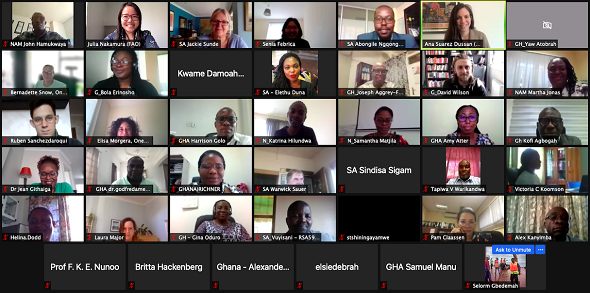
Both EAF and SSF continue to attract growing attention from IFL, which reflects in the adoption of an EAF and/or the inclusion of SSF issues (e.g. ensuring the protection of small-scale fishers and considering their particular needs) in IFL instruments, such as conservation and management measures adopted by regional fishery bodies. While there are certainly examples of countries whose legislation on fisheries contains or reflects elements of the EAF and contains provisions on SSF, the extent to which these issues are catered for in national legal systems worldwide is still limited. This largely depends on the technical capacity of law and policy makers to understand relevant technical and legal issues and adequately conduct the necessary work to improve policy and legal frameworks vis-à-vis the applicable international standards.
In light of these needs, the Development Law Service (LEGN) led a series of virtual regional workshops from September 2020 to April 2021 to raise awareness and build technical capacity of government representatives and relevant stakeholders on EAF and SSF policy and legal matters. These workshops were carried out under the aegis of the EAF-Nansen Programme and the Coastal Fisheries Initiative (CFI) Programme.
The five EAF workshops trained about 135 representatives (including 47 women) from national fisheries bodies and research institutes of 31 countries in Africa and South-East Asia on how to use a diagnostic tool for implementing an EAF through policy and legal frameworks. LEGN developed this diagnostic tool to facilitate the identification and assessment of national policy and legal frameworks that are relevant for an EAF by stakeholders against the EAF, allowing them to identify strengths and gaps, and to then develop recommendations to improve the existing frameworks.
The two SSF workshops applied a similar methodology and approach, based on two other materials produced by LEGN: the Legislating for sustainable small-scale fisheries Guide and the SSF Policy and Legal Diagnostic Tool (yet to be published). About 73 representatives (including 28 women) from national fisheries bodies, research institutes, academia and small-scale fishers’ representatives from six African countries were trained, among others, on how to assess selected fisheries policy and legal frameworks vis-à-vis the SSF Guidelines, how to identify strengths and gaps, and on how to develop recommendations to improve existing fisheries legal frameworks.
The feedback from participants of both the EAF and SSF workshops revealed the value-added of these trainings for enhancing the knowledge and technical capacity of country representatives with respect to these two important topics. With the aim to further advance knowledge in this area, both the EAF and the SSF tools will be the subject-matter of e-learning courses that LEGN is preparing in collaboration with the FAO Fisheries and Aquaculture Division, the FAO e-learning Academy and other external partners such as the One Ocean Hub.
For more information on the workshops carried out so far, please see: here.
A LEGN tribute to Professor Fábio Hazin.
By Julia Nakamura and Blaise Kuemlangan
 ‘Bom dia [good morning]!’, Prof. Fábio Hazin would say in greeting, followed by a broad, vivid and warm smile. Always positive, assertive and clear in his words. Always prompt and willing to help, support and encourage action, good work and tackle challenges with selfless pragmatism, opting always for win-win solutions. One would not be able to uncover, under his warmth, humble personality and immense humanity, Fabio’s established reputation as a consummate fisheries academic, scientist and leader. His clever mind and expertise brought extensive knowledge, inspiration and appreciation of self-worth to his students and to many, in particular those who had the chance of working with him and reading his research as well as his latest non-scientific book 'A arte de aprender a ser' [The art of learning how to be]. His pro-activeness, efficiency and generosity facilitated opportunities and benefited many others, including LEGN colleagues who had the privilege to get to know him, work with him, and engage with him beyond professional matters. ‘Bom dia [good morning]!’, Prof. Fábio Hazin would say in greeting, followed by a broad, vivid and warm smile. Always positive, assertive and clear in his words. Always prompt and willing to help, support and encourage action, good work and tackle challenges with selfless pragmatism, opting always for win-win solutions. One would not be able to uncover, under his warmth, humble personality and immense humanity, Fabio’s established reputation as a consummate fisheries academic, scientist and leader. His clever mind and expertise brought extensive knowledge, inspiration and appreciation of self-worth to his students and to many, in particular those who had the chance of working with him and reading his research as well as his latest non-scientific book 'A arte de aprender a ser' [The art of learning how to be]. His pro-activeness, efficiency and generosity facilitated opportunities and benefited many others, including LEGN colleagues who had the privilege to get to know him, work with him, and engage with him beyond professional matters.
On the eve of World Ocean day, June 7th 2021, Prof. Hazin surprised us, this time, in a very somber way. He passed on to the other side, succumbing to the ultimate of humankind’s realities - mortality. Unexpectedly. Unavoidably leaving those who know him with great sadness. Just a few weeks before, Fabio had replied to one of us in an email, stating ‘tudo ótimo [everything is great]!’. In the same few weeks, he suffered the complications of Covid-19, leading to his premature departure in Recife, Pernambuco, northeast state in Brazil, his home and native country. Another human life, like millions of others, taken, ironically by a virus that is no longer invincible and for which vaccines already exist. Such a sad and shocking event like this causes us to pause and reflect on our lives and vulnerabilities.
We believe, however, that Fabio would not want us to dwell on our loss and missed chances but to celebrate the gains, build on them, look to the future and explore opportunities to do good for the world. In this spirit therefore, we celebrate the life of Prof. Fabio Hazin - a great person, a loving family man, an insightful expert, admired professional and a dear friend to many. We treasure the positive influence he exerted on our efforts to address common concerns, recalling his valuable contributions to national, regional and global fisheries, ocean governance and to LEGN’s work. We are inspired by his zest for life and wellbeing, etching in our memories how important he was and will continue to be.
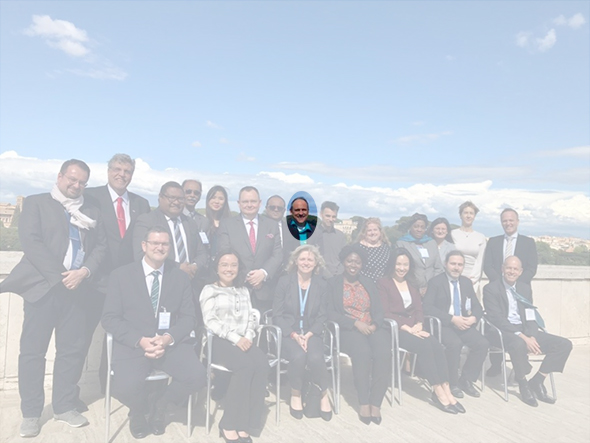
Prof. Hazin’s outstanding curriculum is well known and this short tribute does not do justice as acknowledgement for all his achievements which include participation in over 200 international meetings and publication of about 200 papers. Some highlights of his contributions to FAO’s work include his service as chairperson of the 2008-2009 Technical Consultation leading to the adoption of FAO’s Port States Measures Agreement to Prevent Deter and Eliminate Illegal, Unreported and Unregulated Fishing and the 2013-2014 Technical Consultation which resulted in the adoption of the Voluntary Guidelines for securing sustainable Small-Scale Fisheries. He also acted as first vice-chairperson of the 2012-2014 FAO’s Committee on Fisheries (COFI) and Chairperson of the 2014-2016 COFI. More recently, in 2019, Prof. Hazin chaired and contributed to the LEGN’s Expert Workshop on the implementation of the Convention on International Trade in Endangered Species of Wild Fauna and Flora (CITES) through national fisheries legal frameworks. He was a key contributor to LEGN’s work in 2020, contributing to a comparative study on marine fisheries governance in selected countries, including Brazil, and options for consideration by the Government of India. LEGN was in communication with Prof Hazin to work with him on an upcoming project on strengthening aquaculture legislation in countries in Asia when he unfortunately passed on.
The LEGN Team expresses sincere condolences to his family and friends, and deep gratitude for Prof. Hazin and his extensive work in contributing to better governance of fisheries and the oceans. Thank you, Fabio, for gracing us with your admirable and forever inspiring personality. Rest eternally in peace.
|

